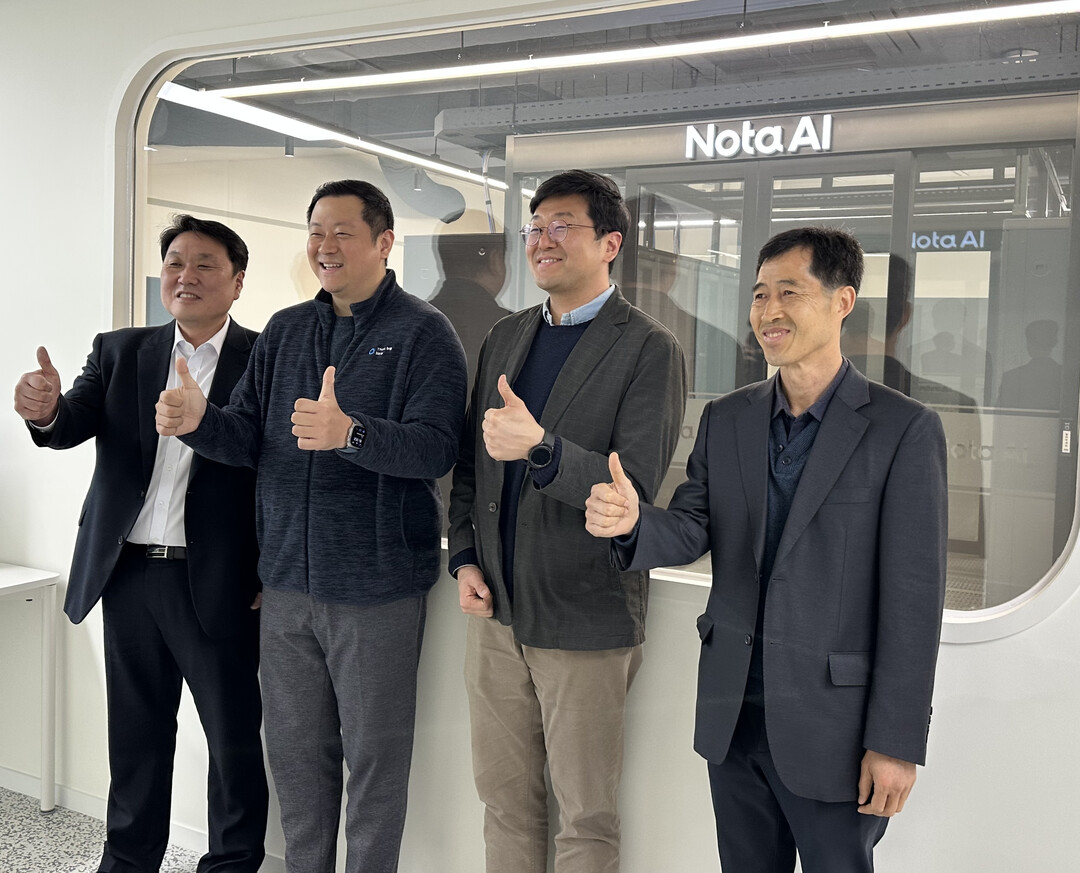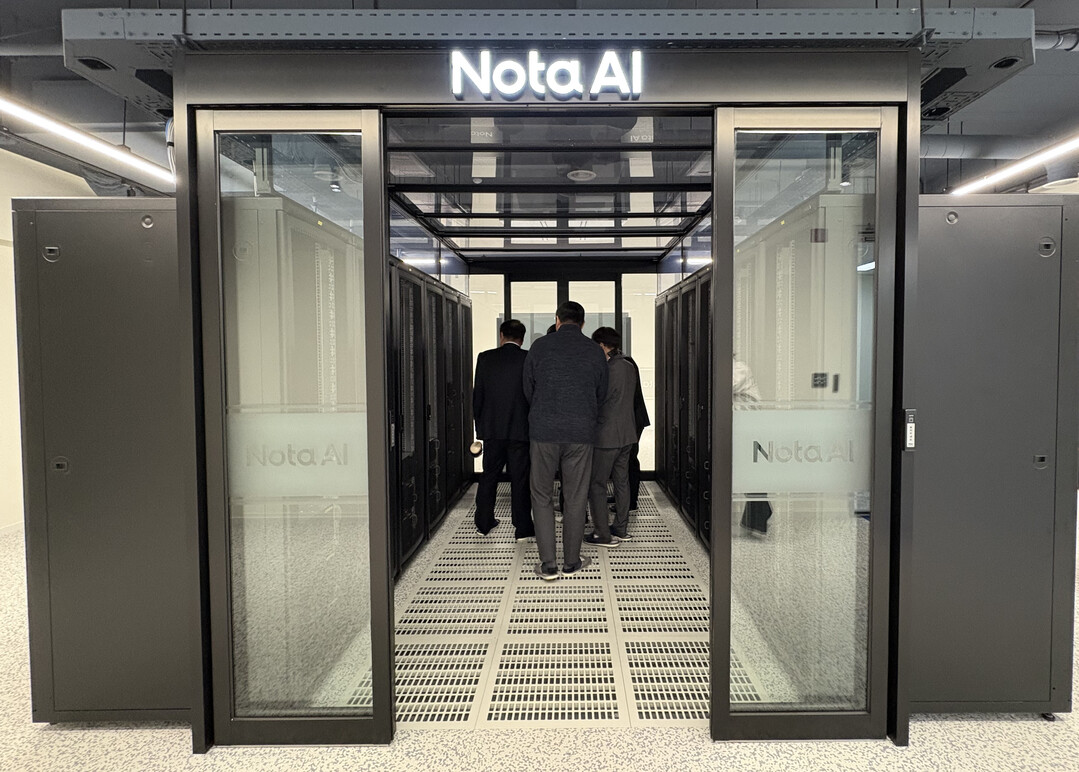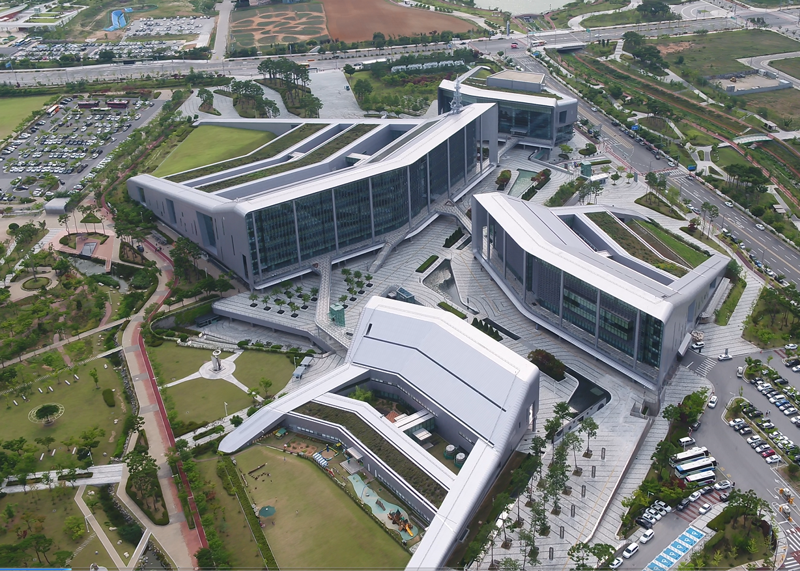
Naepo New City in South Chungcheong Province, South Korea, is rapidly emerging as a pivotal research and development hub for the nation's future advanced mobility technologies. Amidst growing emphasis on Artificial Intelligence (AI), mobility, and robotics, exemplified by the launch of the K-Humanoid Alliance (led by the Ministry of Trade, Industry and Energy), South Chungcheong Province, under Governor Kim Tae-heum, is actively attracting innovative companies spanning from on-device AI to Energy Storage Systems (ESS) to the 'KAIST Mobility Research Center'.
The province announced on April 14th that Nota, a promising startup specializing in AI lightweighting and optimization, has established an AI Computing Center within the KAIST Mobility Research Center.
The ribbon-cutting ceremony was attended by key figures including Ahn Ho, Director-General of the Industry and Economy Office of South Chungcheong Province; Hwang Sun-don, Head of Innovation Strategy Team of Hongseong County; Jang Ki-tae, Head of KAIST Mobility Research Center; Chae Myung-soo, CEO of Nota AI; and Kim Tae-ho, CTO of Nota AI.
Nota, currently preparing for its IPO through the technology special listing track on the KOSDAQ, has received the 'Excellent' grade in the Intelligent Transport System (ITS) technology sector from the Ministry of Land, Infrastructure and Transport. Leveraging the newly established AI learning GPU server, Nota aims to develop 'AI lightweighting technology' and utilize it for research, development, and commercialization.
AI lightweighting technology is crucial for optimizing large-scale AI models to run on small hardware devices (on-device AI), significantly reducing power consumption and improving operational speed. Nota intends to lease its surplus server resources to other resident companies within the Mobility Research Center at a cost lower than existing cloud services, which is expected to significantly boost the R&D and technology commercialization efforts of these startups.
South Chungcheong Province and the KAIST Mobility Research Center plan to accelerate research in advanced mobility in collaboration with resident companies, provincial universities, and research institutions.
Key research areas include: △Development and demonstration of next-generation Energy Storage Systems (ESS) integrated with solar power generation facilities, △Introduction of eco-friendly AI data center operation models, △Technology for stabilizing and improving the efficiency of power grids using mobile Energy Storage Systems (ESS), △Demonstration and collaborative system technology for autonomous logistics delivery for SMEs using Autonomous Mobile Robots (AMR), and △Immersion cooling technology for enhanced safety.
The 'KAIST Mobility Research Center' officially opened on November 13th of the previous year. The opening ceremony, attended by Governor Kim Tae-heum, KAIST President Lee Kwang-hyung, Hongseong County Mayor Lee Yong-rok, and numerous business leaders, garnered significant attention as it commenced operations just six months after the initial memorandum of understanding was signed. The research center is building an industry-academia-research ecosystem by providing comprehensive support throughout the entire mobility sector lifecycle, encompassing research and development, startup incubation, and investment attraction.
Approximately five months since its opening, the center has already attracted 17 companies. An additional three companies are scheduled to move in by May 1st, bringing the total number of resident companies to 20.
These resident companies are engaged in the development of diverse technologies and products spanning AI, semiconductors, wireless charging, batteries, electric trucks, autonomous driving communication, drone unmanned control, and agricultural machinery mobility. This diverse ecosystem is anticipated to foster significant synergy effects across different industries, propelling innovation in the future mobility landscape. The proactive attraction of leading-edge companies like Nota underscores the KAIST Mobility Research Center's growing prominence as a vital engine for South Korea's advancement in the rapidly evolving field of mobility.



[Copyright (c) Global Economic Times. All Rights Reserved.]






























